Games for Speech, Language, and Thinking Skills
Starblaster Language Development Game
(#499912-IN)Academic Communication Associates
Ages 9 through 17. Challenge students to categorize words, make comparisons, define words, and solve problems using this high-interest game.
Super VERBingo
(#4545-IN)Patty R. Schuchardt
Ages 4 through 8. Play this bingo-like game and help children learn to use basic verbs.
Talk About Fun: Language Activities and Games for Preschool and Kindergarten
(#4611-IN)
Ages 4 through 6. Use these game activities to build language skills as children label words, describe noun function, categorize words, make comparisons, and describe events!
Think-A-Sentence Language Challenge
(#4042-IN)Patty R. Shuchardt
Ages 5 through 11. The activities in this game help children use present tense verbs, irregular verb forms, and other structures.
Thinking Fun Games for Language
(#48341-IN)Academic Communication Associates
Ages 4 through 8. Use games and activities to help children develop skills in articulation, vocabulary, categorization, sentence structure, and verbal reasoning.
Thinking Fun Games for Language (Downloadable Edition)
(#48341DL-IN)Academic Communication Associates
Ages 4 through 8. Use games and activities to help children develop skills in articulation, vocabulary, categorization, sentence structure, and verbal reasoning.
Vocabulary Venture: A Communication Safari
(#4043-IN)Patty R. Schuchardt
Ages 5 through 11. Use this game to build language skills as students make comparisons, describe word relationships, give explanations, and identify errors in word usage.
Volcano Island: A Game for Vocabulary and Verbal Reasoning Skills
(#499915-IN)Academic Communication Associates
Ages 8 through 17. Build language skills as children define words, describe nouns, make comparisons, and MORE!
What Do You Say? - Both Levels- Special Combo Offer
(#49938)
What Do You Say? - Early Childhood Level
(#49940-IN)Ages 4 through 8. This game is designed for young children who need to practice basic language skills such as greeting others, taking turns, asking for help, and responding to questions.
What Do You Say? A Pragmatic Language Game
(#49939-IN)Academic Communication Associates
Ages 8 through 17. This game is designed to strengthen pragmatic communication and problem-solving skills.




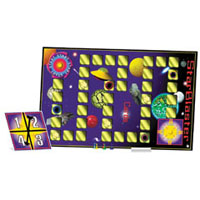



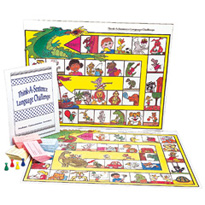
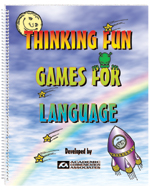
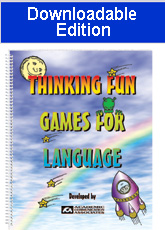

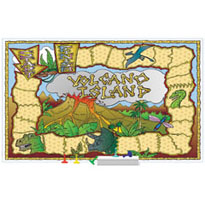
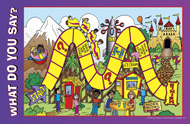
.jpg)
